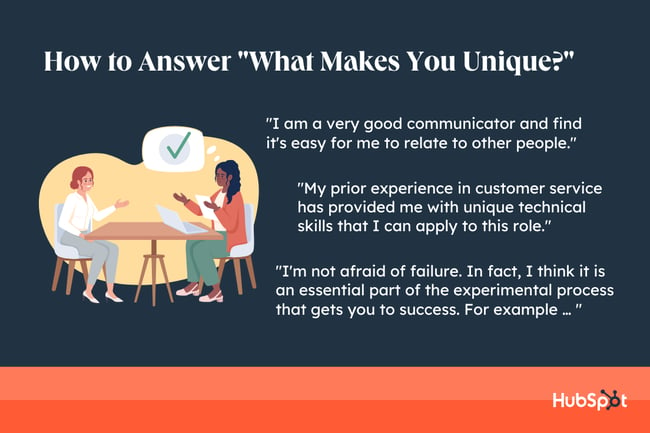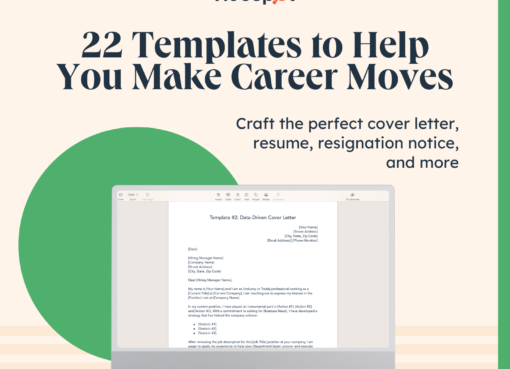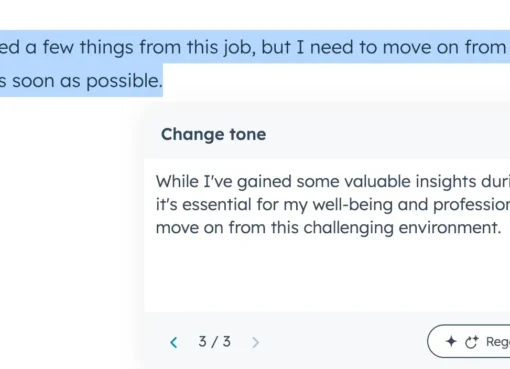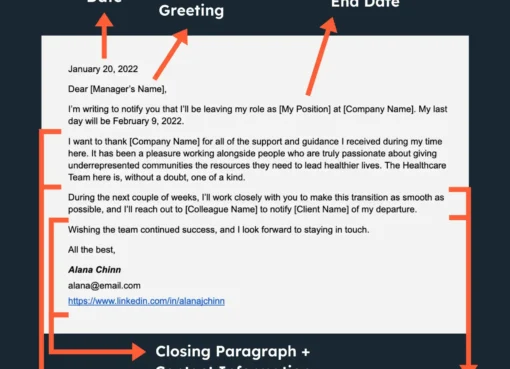Whenever I get asked ‘What makes you unique?’ or ‘What makes you stand out from other candidates?’ in an interview, I use it as the perfect opportunity to explain why I’m the best person for the role.

And I like to get specific. I’ve found that interviewers respond positively when I skip the generics and tie my answer back to what I have to offer based on my individual background.
![Free Guide: 50 Common Interview Questions [Download Now]](https://blog.contentkrush.com/wp-content/uploads/2024/04/localimages/aac5dac8-7420-4881-a73f-ee611981ae3a.png6628bc9cabfd7.png)
Your answer could ultimately make or break your interview, so it’s important to really nail it. I’ll walk you through how to answer this question the right way.
Table of Contents
- Subtle Ways Interviewers Ask ‘What makes you unique?’
- Why do interviewers ask ‘What sets you apart from other candidates?’
- How to Answer “What makes you unique?”
- 7 Sample Answers to “What Makes You Unique?” and Why They Work
- Prepare Beyond ‘What Makes You Unique?’
Subtle Ways Interviewers Ask ‘What makes you unique?’
There are many ways that interviewers try to tease out what makes you a stand-out candidate.
Here are some of the common questions that are actually ‘What makes you unique?’ in disguise:
- What makes you stand out from other candidates?
- What sets you apart from other candidates?
- What can you bring to this role that’s different from other candidates?
- What makes you a valuable candidate for this role?
- Why are you the best candidate for this role?
- Why should I choose you over other candidates?
No matter how this question manifests itself during your interview, the overarching goal remains the same.
Why do interviewers ask ‘What sets you apart from other candidates?’
The interviewer is asking you this question to give you an opportunity to showcase your value.
They want to see that you’ve done thorough research about the company and the position. And they want you to connect your skills and experience back to the role you’re interviewing for.
For example, let’s say I’m trying to land a social media role, and I notice that the company could be doing a better job on TikTok.
I can use this as an opportunity to:
- Show that I’ve done my homework — I’m already familiar with the company’s social media presence and the platforms where they’re currently active (i.e., TikTok).
- Highlight relevant skills — I have several years of experience managing and growing TikTok accounts, so I’ll be sure to mention that.
- Provide a light recommendation — I’ll share how my skills and experience allows me to identify and implement that recommendation.
Think about it like this: If you can show the interviewer that you can help the company meet their goals (and that you know what their goals are in the first place), that’s one great way to set yourself apart from the rest.
Plus, it becomes clear to the interviewer that you’ve taken the time to prepare if you can provide specific examples related to the role.
These are all reasons why this is such a popular interview question — so come ready, and don’t be afraid to humble brag about yourself a little.
- Mention skills listed in the job description.
- Provide specific examples from your background.
- Avoid generic phrases like ‘I’m a hard worker.’
- Include key personality traits that will allow you to deliver results.
- Tell the interviewer how your unique skills will help the company succeed.
1. Mention skills listed in the job description.
This is one of the best ways to show the interviewer that you’ve done your research. Also, the job description is basically like your cheat sheet. Use it as a guide so you know exactly which skills to highlight throughout the interview.
My recommendation: Refer back to the job description but don’t recite it word for word. Use it in context to explain how your skillset aligns with the expectations for the role.
2. Provide specific examples from your background.
This is another smart way you can use the job description to your advantage. Reference prior accomplishments or results from past roles that relate to the position you’re interviewing for.
My recommendation: Focus on examples that tie back to the skills required for the position, and always quantify success where possible.
Using our social media example, saying ‘I ran a social media campaign which resulted in a 120% increase in traffic to our website’ is a lot more impactful than ‘I have experience running social media campaigns.’
3. Avoid generic phrases like “I’m a hard worker.”
Remember, this is a very standard interview question, so that means every candidate is likely being asked this question.
Make your answer compelling. Instead of saying you’re a ‘hard worker,’ give specific examples about the hard work you’ve accomplished related to the role.
My recommendation: Try to avoid the common buzzwords and instead replace those with real descriptions of your past work.
For example, you and every other candidate for a social media position probably consider yourselves to be “social media savvy.”
Instead, make the case to prove that you are actually savvier than the competition based on your unique background.
4. Include key personality traits that will allow you to deliver results.
Someone else might have similar skills as you, but your personality is one of a kind.
Being ‘social media savvy’ is one thing. But if you’re social media savvy and a tenacious person who is able to think quickly on your feet, that’s an asset.
Highlight the traits that have proven value in helping you grow as a professional.
My recommendation: You want to know one of my favorite ways to convince interviewers that I can deliver the results they’re looking for? Tell them how I’ve found similar success in the past and how my individuality supported that.
5. Tell the interviewer how your unique skills will help the company succeed.
This closely relates back to Tip #3.
Don’t just talk about generic skills that most candidates have — always tie your skills back to specific projects you’ve worked on.
Your background is what makes you unique. There’s no one person that has the exact experience, skills, and traits that you do. Use that to your advantage.
My recommendation: You may not know the company’s internal goals, but you should always try to connect your skills back to their mission and values when possible.
7 Sample Answers to “What Makes You Unique?” and Why They Work

1. “I am a very good communicator and find it’s easy for me to relate to other people.”
Consider mentioning a personality trait you feel would be a good fit for the business. After reading the job description, make a list of attributes that could make you an exceptional candidate.
Additionally, including a personality trait in your answer allows you to display how you’re a good fit for a role in which you have little prior experience.
For instance, if you’re applying for a position as a team leader, it’s critical that you demonstrate strong communication skills and an ability to connect with a diverse group of people.
If you tell the interviewer, “I am a very good communicator and find it’s easy for me to relate to other people”, you’re able to match your personality to components of a successful leader.
Why this works: Effective communication is a critical trait to emphasize in interviews. If you consider how 86% of employees cite lack of collaboration as a main component of workplace failures, you can begin to appreciate why.
2. “I really enjoy learning new things and am constantly seeking out new learning opportunities.”
By mentioning your passion for learning new things, you’re demonstrating you’re growth-focused and unafraid of challenges.
Additionally, answering the question in this way allows you to remind the interviewer why you’re uniquely qualified for the role.
Why this works: While other candidates might have more prior experience in the industry, you’re proving your desire to exceed expectations of the job quickly.
3. “My prior experience in customer service has provided me with unique technical skills that I can apply to this role.”
If you have prior experience in a role vastly different from the one for which you’re applying, you might use this as an opportunity to explain how your background uniquely qualifies you.
It’s critical, however, that you provide specific examples of how your prior experience has provided you with certain transferable skills.
For instance, you might say the following:
“My prior experience in customer service provided me with an extensive knowledge base for how our product works. As a marketer, I will be able to use this knowledge to ensure we’re meeting our customers’ needs.”
It’s also important to highlight: Previous job experience has declined in importance when it comes to recruiters evaluating candidates. In fact, over the last few years, that number has dropped from 92% to 62%.
So it’s okay if you feel your prior work experience doesn’t perfectly align with the role for which you’re applying — as long as you can explain how your skills will help you succeed.
Why this works: With an answer like this one, you’re able to alleviate concerns the interviewer might have with your lack of experience in the field.
4. “Working at a startup gave me an opportunity to understand the ins-and-outs of the industry, and to take on tasks I might not have at a larger company. I think this experience gives me a slight edge over other applicants.”
Similar to the answer above, this answer is a good one if you’re attempting to switch industries.
Consider how your background has allowed you to gain unique skills that others, who followed a more linear career trajectory, might not have.
For instance, if you previously worked at a small startup and now you want to transfer to a large corporation, it’s important you mention how those skills will make you successful in this new role.
Why this works: If you think your prior experience could deter interviewers from seeing you as exceptionally qualified, this is an optimal chance to prove them wrong.
5. “I’m not afraid of failure. In fact, I think it is an essential part of the experimental process that gets you to success. For example … “
This answer shows your interviewer that you’re not afraid to take risks.
Of course, you’ll only want to say this if you have a positive example to reinforce the importance of failure in the workplace.
You don’t want to sound like you make mistakes all the time, but you’ll stand out if you mention how you turned a failure into a success.
For instance, you might say, “I’m not afraid of failure. In my last role, we tried to streamline our SEO process and, along the way, found we’d accidentally decreased traffic to our site.
However, this initial failure allowed me to see the errors in our previous procedure. My team and I came up with a more successful strategy to avoid these mistakes in the future, and ended up increasing traffic by 20%.”
Why this works: With this answer, you’re showing you’re capable of remaining flexible and open-minded when something doesn’t work right away, and you know how to take failures and use them as learning opportunities.
6. “When solving problems, I apply both logic and emotional aspects in equal proportion. For instance, I’m trained in SEO and understand how to use analytics to ensure a marketing campaign is successful, but I also majored in design and know how to apply creativity to a project as well.”
If you’re stuck on deciding how to demonstrate your unique qualifications, start by thinking about how other people approach problems at your company, and how you differ.
For instance, most people are either logical and use analytics to solve problems, or emotional and use creativity. It’s rare to find someone who is both.
Why this works: Most people focus on highlighting one skill per question in an interview. If you’re able to demonstrate that you’re comfortable combining two unique skills, it’s an impressive ability you should highlight.
7. “I’m exceptionally organized, and at my last company, I was able to apply this skill to improve our process and increase ROI by 33%.”
Remember, when your interviewer asks “what makes you unique”, they’re really wondering “how will you help our company?”
At the end of the day, it’s critical you tie your answer back to how you will solve problems for the company.
48% of recruiters say improving quality of hire is a top priority — so you’ll want to ensure your answer highlights how you will excel in the role for the long haul.
Consider a personality trait or skill set that helped your last company achieve results. If the results are quantitative, make sure you have the specific numbers to support your claim.
However, it’s also appropriate to share qualitative results, such as, “my organizational skills led my manager to trusting me with a major project within the first two months in my role.”
Why this works: Ultimately, providing examples shows the interviewer you’re results-driven, and aren’t just saying generic phrases to answer their question.
For even more inspiration on how to answer this question effectively, check out the video below.
Prepare Beyond ‘What Makes You Unique?’
The age-old “What makes you stand out from other candidates” question is one of many common questions that interviewers love, so it’s important to prep accordingly.
HubSpot’s comprehensive interview guide to help you tackle over 50 different interview questions like a pro, including questions related to:
- Who you are and what skills you bring to the role
- How you respond to challenges and conflict
- How you’ll fit into or add to the company culture
- Your professional goals and desired career trajectory
Download it for free here.
Stand Out in the Crowd
Essentially, ‘What makes you unique’ really means, ‘What makes you an exceptionally good fit for this role?’ Come prepared, get specific, and use examples to prove that you’re the best option in the candidate pool.






![Need to Write a Job Offer Letter? I’ve Got You Covered [+ Free Template & Examples] need-to-write-a-job-offer-letter?-i’ve-got-you-covered-[+-free-template-&-examples]](https://blog.contentkrush.com/wp-content/uploads/2024/11/140555-need-to-write-a-job-offer-letter-ive-got-you-covered-free-template-examples-510x369.png)



![The Best 30-60-90 Day Plan for Your New Job [Template + Examples] the-best-30-60-90-day-plan-for-your-new-job-[template-+-examples]](https://blog.contentkrush.com/wp-content/uploads/2024/09/140275-the-best-30-60-90-day-plan-for-your-new-job-template-examples-510x369.webp)



Comment here